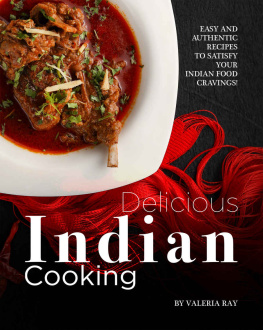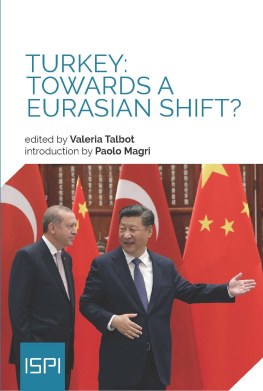Also available from Bloomsbury:
Food and Museums, edited by Nina Levent and Irina D. Mihalache
Making Taste Public , edited by Carole Counihan & Susanne Hojlund
Representing Italy Through Food, edited by Peter Naccarato, Zachary Nowak, Elgin K. Eckert
This book is the result of a collective reflection that started some years ago between scholars interested in food and in social movements. Some of the authors of this volume contributed to the edited book Food Activism: Economy, Agency and Democracy (published in 2014) which helped to outline the comparative framework to study different kinds of mobilizations around food production, distribution, and consumption. In 2013, we launched a discussion of food activism in Europe by organizing a round table at the American Anthropological Association meetings in Chicago on Food activism in Europe: Changing paradigms, changing practices. In June 2014, Susana Narotzky and Valeria Siniscalchi organized a conference in Marseille at the cole des Hautes tudes en Sciences Sociales (EHESS) titled Value and Values in Agro-Food Systems that brought together scholars from the Centre Norbert Elias, the Groupement de recherche en conomie quantitative dAix-Marseille (GREQAM), the Grupo de estudios sobre la Reciprocidad of the Universitat de Barcelona, and other universities.
In the years that followed, we organized a series of panels during the American Anthropological Association (AAA) annual meetings and the biannual European Association of Social Anthropologists (EASA) conference that brought together the scholars who contributed to this book. These panels included Food Activism in Europe: Networks, alliances, strategies (conveners Carole Counihan and Valeria Siniscalchi, Washington DC, 2014), Food values in Europe: Sustainable Economies, Power and Activism (conveners Krista Harper and Valeria Siniscalchi, Denver, 2015), Food Value and Values in Europe: Economic Legacies and Alternative Futures in Production and Consumption (conveners Krista Harper and Valeria Siniscalchi, Milan, 2016), and Alternative Food Spaces and Economies in Europe (conveners Dana Conzo, Krista Harper and Valeria Siniscalchi, Minneapolis, 2016).
A series of seminars organized alternately at our institutions, the EHESS (Centre Norbert lias) in Marseille and the University of Massachusetts Amherst, allowed us to extend the discussion to graduate students from both our institutions and to draw the different lines connecting our fieldworks and the topics that are at the core of this book. The seminars were titled Anthropologie des formes de mobilisation (EHESS-UMass, Marseille, June 2015), Mobilizing the visual /Mobiliser la dimension visuelle (EHESS-UMass, Marseille, March 2016), Ethnography of Europe: Junior Scholars Research Forum (Amherst, November 2016), and Grassroots: economies, politics and communities (EHESS-UMass, Marseille, May, 2017). These student workshops were partially funded by the Culture and Heritage in European Societies and Spaces program, an international research and training grant awarded by the National Science Foundation (IIA-1261172). We would like to thank all of the people who participated in these initiatives that nourished reflections around food values. We thank our institutionsthe University of Massachusetts Amherst and EHESSfor funding some of these meetings and supporting this project.
Many colleagues gave us encouragement, feedback, and helpful exchanges around food values, resistance, and resilience as we worked on this book. A few who deserve special appreciation for discussing versions of this work with us are Laura Centemeri, Yuson Jung, Boone Shear, and Jacqueline Urla.
We would like to thank the editors at Bloomsbury, Miriam Cantwell and Lucy Carroll, for encouraging this project and supporting us throughout the process. Three anonymous reviewers offered us helpful suggestions that allowed us to improve our project. We are grateful to Dana Conzo for her editorial assistance in the last steps of this work.
The cover image, by photographer Franco Zecchin, Valerias husband, was taken in Marseille, during a vegetable distribution. We thank Christian Nador and his son, Clment, members of the Saint Giniez farm basket group, who are represented in the picture. We express special gratitude to No Guiraud for preparing the map of contributors field sites that appears in our introduction.
Finally, we thank our families for hosting this multiyear collaboration: Franco and Adriano Zecchin in Marseille and Michael, Zeke, and Rafi Ash in Massachusetts.
Food Values in Europe offers an important contribution to the growing literature on food activism with its thirteen chapters examining how Europeans negotiate values through alternative food practices in diverse settings. Its particular significance is twofold. First, it considers simultaneously two forms of valueon the one hand, economic or market value measured by price and, on the other, moral, political, and social values established by human actions and beliefs. Examining how these two kinds of value are interconnected enhances the understanding of both and of food activism more broadly. Second, the book is significant because it presents rich ethnographic studies of food activism from across the European Union, which applies the same agrofood policies and regulations to diverse countries and regions. Looking at food projects is one way to examine a key EU challenge of maintaining unity within diversity.
The book builds on the fact that food is multidimensional: a key human need, a commodity, a gift, an environmental product, a relational glue, and an embodiment of beliefs. Through their contestatory and alternative initiatives, practitioners of food activism put their values into the forefront of their actions as they clarify their economic, cultural, and political objectives. Harper and Siniscalchi have gathered diverse case studies from Western, Southern, and Eastern Europe to assess whether and how food projects can be transformative of larger institutions and society.
The book explores a wide range of alternative food initiativesincluding urban gardens, small-scale farming and pastoralism, consumer cooperatives, basket systems, and counter-hegemonic consumption practicesand highlights their common goals. First and foremost they share a resistance to market penetration of food provisioning and human relationships. They reflect the double movement observed by economic anthropologist Karl Polanyi: as the market increasingly penetrates, people increasingly push back and emphasize social over economic relationships, particularly by connecting consumers and producers and eliminating middlepersons. Food activists experiment with new kinds of networks and alliances such as those forged between urban consumers and rural farmers in the AMAP basket system in Marseille, France (Siniscalchi). They share a search for high-quality local food, contrast it with insipid industrial food, and use it to attract consumers. The food projects feature new forms of production, exchange, and consumption, which the book organizes into four main categoriesprosuming, contesting, connecting, and consuming.













